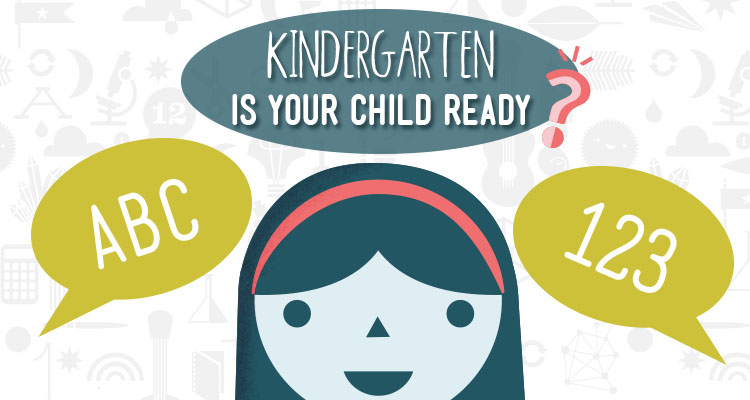Child development experts agree that no perfect formula determines when children are truly ready for kindergarten. According to the National Association for the Education of Young Children (NAEYC), commitment to promoting universal school readiness requires supporting children’s individual differences and establishing reasonable and appropriate expectations for what children should be able to do when they enter school.
“Enthusiasm and excitement can be big indicators of readiness,” says Molly O’Hara Dowley, director of K–5 at K12. “If your child is excited about school, they may very well be ready to enter kindergarten. It’s the role of teachers to meet children where they are and assist them in developing from there.”
While individual state age requirements and some basic academic benchmarks are considered readiness indicators, Dowley says it’s also important to consider the following regarding your particular child:
- Children enter kindergarten at different levels of preparedness and with various levels of skills and knowledge.
- Good educators meet children where they are developmentally and help them to discover, learn, and grow.
- Parents know their child best.
- Kindergarten is a time of tremendous growth, as are the months leading up to starting kindergarten. Perhaps a child can’t count to 10 today, but may be able to do so tomorrow.
- Can your child focus on an activity for 15–20 minutes?
Basic Benchmarks
These tasks are examples of what children may have either mastered or come close to accomplishing by the time they start kindergarten:
[column size=one_half position=first ]
Motor Skills
- Traces on the line
- Enjoys cutting with scissors
- Balances on one foot
- Bounces a ball
- Hops and skips
- Gets dressed independently
[/column]
[column size=one_half position=last ]
Math
- Counts in sequence 1–10
- Identifies shapes
- Identifies numerals 1–10
- Sorts and classifies
- Patterning
[/column]
[column size=one_half position=first ]
Social and Emotional
- Initiates free play activities
- Follows 2-step directions
- Completes a task the first time it is assigned
- Finish one task before beginning another
- Work independently for at least 10 minutes
- Generate solutions to simple problems in life
- Interacts with and plays with peers
- Asks to participate in school related activities
[/column]
[column size=one_half position=last ]
Language Arts and Writing
- Identifies some letters
- Rhymes words
- Experiments with sounds
- Begins to write letters and numerals
- Enjoys being read to
- Speaks in sentences using five to six words
- Looks at pictures and tells stories about them
[/column]
Brenda Hardin, kindergarten teacher at Arizona Virtual Academy, advises, “It is crucial to consider all aspects of your child’s development when debating entrance into kindergarten. A child may be academically ready to start school, but lacking appropriate social and emotional skills which are absolutely vital to ensuring a successful education.”
How To Prepare Your Child
Finally, the following are some ideas about how to help your child as they get closer to starting kindergarten:
- Help your child write their name
- Explore shapes and colors
- Learn letters and their sounds
- Enjoy numbers, including counting together (count stairs, birds, etc.)
- Discover words that rhyme
- Read, read, read to your child—read books to your child and read the words that are part of their everyday world (signs on buildings, boxes, etc.)
- Sort similar objects by color, size, and shape
- Talk about the days of the week
- Draw, cut, and run
- Play games
- Provide opportunities for your child to socialize with others
- Practice taking turns
- Model appropriate problem solving techniques
K12 offers a wide variety of learning activities for kindergartners as well as kindergarten programs. For information on enrolling your child, please visit K12.com or call 866.968.7512.





































